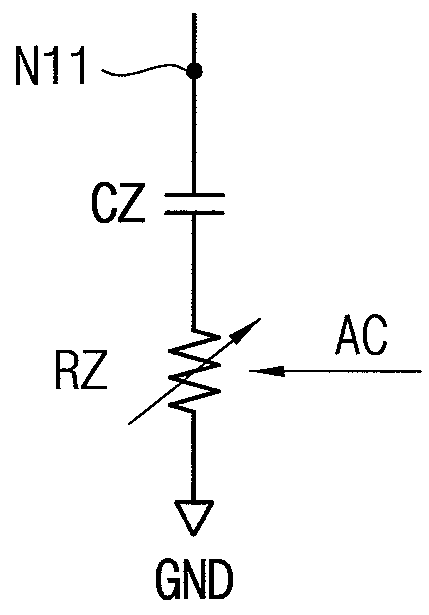Regulator circuit for reducing output ripple
a technology of output ripple and regulator circuit, which is applied in the direction of differential amplifier, dc-dc conversion, power conversion system, etc., can solve the problems of reducing the performance of the regulator, increasing the time needed to remove ripple from the output voltage, and increasing the size and gate capacitance of the power transistor, so as to improve the speed and reduce the ripple of the output voltage.
- Summary
- Abstract
- Description
- Claims
- Application Information
AI Technical Summary
Benefits of technology
Problems solved by technology
Method used
Image
Examples
Embodiment Construction
[0033]Various example embodiments will be described more fully hereinafter with reference to the accompanying drawings, in which some example embodiments are shown. The present disclosure may, however, be embodied in many different forms and should not be construed as limited to the example embodiments set forth herein. Rather, these example embodiments are provided so that this disclosure will be thorough and complete and will fully convey the scope of the present disclosure to those skilled in the art. In the drawings, the sizes and relative sizes of layers and regions may be exaggerated for clarity. Like numerals refer to like elements throughout.
[0034]FIG. 1 is a block diagram illustrating a regulator circuit according to some example embodiments.
[0035]Referring to FIG. 1, a regulator circuit 100 includes an operational amplifier 110, a buffer 120, a power transistor 130, a first feedback circuit 140, a current sensor 180, a second feedback circuit 160, and a stabilizer 150.
[003...
PUM
 Login to View More
Login to View More Abstract
Description
Claims
Application Information
 Login to View More
Login to View More - R&D
- Intellectual Property
- Life Sciences
- Materials
- Tech Scout
- Unparalleled Data Quality
- Higher Quality Content
- 60% Fewer Hallucinations
Browse by: Latest US Patents, China's latest patents, Technical Efficacy Thesaurus, Application Domain, Technology Topic, Popular Technical Reports.
© 2025 PatSnap. All rights reserved.Legal|Privacy policy|Modern Slavery Act Transparency Statement|Sitemap|About US| Contact US: help@patsnap.com



